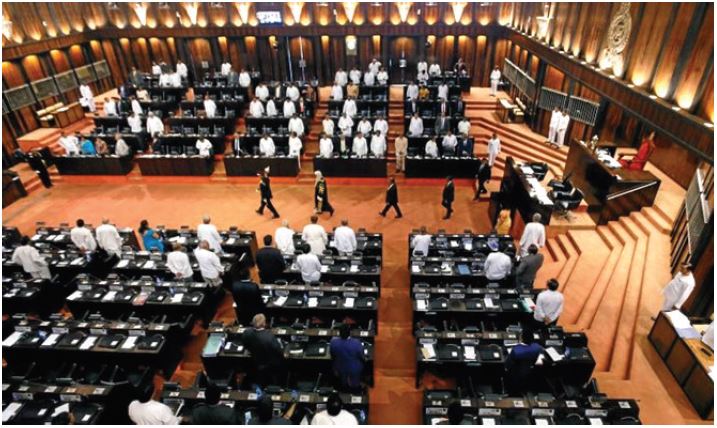A relevant report written by a panel of people with int. experience in various fields…downloaded by more than half a million people. Insights about the future, mega trends, and the global governance we need to face the challenges.
Executive Summary
As the world slowly emerges from the devastating Financial Crisis, it is time to reflect on the lessons of this turbulent period and think afresh about how to prevent future crises.
The Oxford Martin Commission for Future Generations focuses on the increasing short-termism of modern politics and our collective inability to break the gridlock which undermines attempts to address the biggest challenges that will shape our future. In Now for the Long Term, we urge decision-makers to overcome their pressing daily preoccupations to tackle problems that will determine the lives of today’s and tomorrow’s generations. Dr James Martin, the founder of the Oxford Martin School, highlighted that humanity is at a crossroads. This could be our best century ever, or our worst. The outcome will depend on our ability to understand and harness the extraordinary opportunities as well as manage the unprecedented uncertainties and risks.
Our report identifies what these challenges are, explains how progress can be made, and provides practical recommendations. The Commission outlines an agenda for the long term. Our case for action is built in three parts. The first, Possible Futures, identifies the key drivers of change and considers how we may address the challenges that will dominate this century. Next, in Responsible Futures, the Commission draws inspiration from previous examples of where impediments to action have been overcome, and lessons from where progress has been stalled. We then consider the characteristics of our current national and global society that frustrate progress. The final part, Practical Futures, sets out the principles for action and offers illustrative ecommendations which show how we can build a sustainable, inclusive and resilient future for all.
Part A, Possible Futures, identifies a number of interacting megatrends, grouped under seven headings: demographics (large, ageing populations); mobility (urbanisation and a growing middle class); society (inequality and unemployment); geopolitics (power transitions); sustainability (resource insecurity); health (shifting burdens of disease); and technology (information and communications revolution). These megatrends apply the world over, reinforcing old and generating new sets of challenges.
The Commission then considers five categories of challenges that arise from these megatrends that are likely to shape our future:
Society: How can growth and development be made more sustainable and inclusive?
2. Resources: How can food, energy, water and biodiversity be made more secure?
3. Health: How can public health infrastructure and processes respond to the needs of all?
4. Geopolitics: How can power transitions be the basis for fresh forms of collaboration?
5. Governance: How can businesses, institutions and governments contribute to more inclusive and sustainable growth?
Part A also highlights what is known about possible responses to these challenges. New targets on growth and employment, and a focus on youth workers and flexible workplaces are presented. The importance of resource transparency and information sharing is reiterated, as are measures to counteract climate change. Goals to reduce non-communicable diseases (NCDs), remedy deficiencies in public health systems, implement agreed best practice, and partner creatively with the pharmaceutical industry are stressed. Countries are advised to identify shared interests, update institutions and develop cybersecurity capacity as they navigate structural transitions in international politics. Better governance will aid this quest, particularly if technology is used creatively, indicators are improved, and business is rewired to invest for the long term.
In Part B, Responsible Futures, the Commission examines historical drivers of transformative change, such as the existence of crisis, shared interests, leadership, inclusion, institutions and networks, partnerships, as well as goals and prizes. From campaigns to protect the ozone layer and reduce tobacco use, to the European Single Market and the Millennium Development Goals, there are many examples of where disparate groups have come together and made significant progress. At the other end of the results spectrum, the Commission considers less successful characteristics of modern politics, including the tragedy of the commons, a lack of intergenerational vision and awareness, the absence of global oversight, and vested interests. Following these insights, Part B sets out five shaping factors that make positive change so difficult:
Institutions: Too many have struggled to adapt to today’s hyper-connected world.
2. Time: Short-termism directs political and business cycles, despite compelling exceptions.
3. Political Engagement and Public Trust: Politics has not adapted to new methods or members.
4. Growing Complexity: Problems can escalate much more rapidly than they can be solved.
5. Cultural Biases: Globalisation can amplify cultural differences and exclude key voices
Part C, Practical Futures, contains the Commission’s Agenda for the Long Term. It is arranged around five principles, with practical examples proposed to illustrate each principle. Some build on possible responses to the challenges identified in Part A. Others respond to the shaping factors outlined in Part B, and seek to address deeper political and cultural factors that obstruct a longer-term engagement. We provide indicative examples of principles and proposals that advance the interests of future generations and promote resilience, inclusiveness and sustainability. The Agenda is as follows:
Creative Coalitions: Responding to this century’s challenges will require multi-stakeholder partnerships. The Commission suggests three:
• C20-C30-C40: a Coalition of the Working comprising countries, companies and cities to counteract climate change.
• CyberEx: a new early warning platform to promote a better understanding of common threats amongst government, corporate and individual users.
• Fit Cities: a city-based network to fight the rise of non-communicable diseases.
2. Innovative, Open and Reinvigorated Institutions: Institutions and processes should be renewed for the modern operating environment. Five steps are suggested:
• Decades, not Days: invest in independent, accountable institutions able to operate across longer-term horizons.
• Fit for Purpose: incorporate sunset clauses into publicly funded international institutions to ensure regular review of accomplishments and mandates.
• Open up Politics: build on initiatives such as the Open Government Platform to optimise new forms of participation and transparency.
• Make the Numbers Count: establish Worldstat to improve the reliability and availability of statistics.
• Transparent Taxation: address tax abuse and avoidance through a Voluntary Taxation and Regulatory Exchange.
3. Revalue the Future: Existing institutional incentives should be rebalanced to reduce bias against future generations. This can be done in four ways:
• Focus Business on the Long Term: ensure companies and financial systems give greater priority to long term “health” and look beyond daily or quarterly reporting cycles.
• Discounting: future generations should not be discounted against simply because they are born tomorrow and not today.
• Invest in People: remove perverse subsidies on hydrocarbons and agriculture, and redirect support to the poor.
• Measure Long-term Impact: create an index to track the effectiveness of countries, companies and international institutions on longer term issues.
4. Invest in Younger Generations: Greater attention should be given to promoting a more inclusive and empowered society, particularly for younger generations. Two priorities should be:
• Attack Poverty at its Source: break the intergenerational cycle of poverty through social protection measures such as conditional cash transfer programmes.
• A Future for Youth: countries should invest in youth guarantees to address unemployment and underemployment.
5. Establish a Common Platform of Understanding: The ability to address today’s global challenges is undermined by the absence of a collective vision for society. To remedy this, the Commission urges renewed dialogue on an updated set of shared global values around which a unified and enduring pathway for society can be built.
The Commission applauds the remarkable progress of past decades: on balance, the world’s population is safer, healthier, more productive and cooperative than ever. Nevertheless, much work remains to be done. Now for the Long Term aims to stimulate action and debate. Commissioners look forward to engaging with governments, businesses, NGOs and civil society in order to take these ideas and recommendations forward in the months and years ahead.




Leave A Comment
You must be logged in to post a comment.